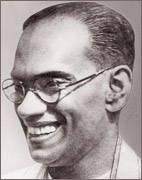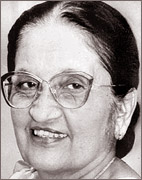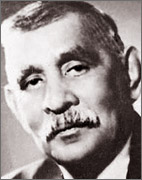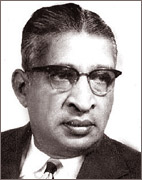Ranil’s survival games
 Since the Local Government elections, the reformist group within the
UNP has gone into a shell. The reason for this being that the party
under Ranil’s leadership is thought to have retained the Colombo CMC
while the provinces, including those headed by the reformists, made a
poor show at the LG elections. Thus Ranil and his loyalist have
interpreted the results to be a vindication of Ranil’s leadership while
the reformists, despite all their rebel rousing, are said to be ‘poor
vote getters’. Since the Local Government elections, the reformist group within the
UNP has gone into a shell. The reason for this being that the party
under Ranil’s leadership is thought to have retained the Colombo CMC
while the provinces, including those headed by the reformists, made a
poor show at the LG elections. Thus Ranil and his loyalist have
interpreted the results to be a vindication of Ranil’s leadership while
the reformists, despite all their rebel rousing, are said to be ‘poor
vote getters’.
Well, this is an analysis the present UNP top brass would wish to
believe to buttress their positions even though in reality the position
is quite the obverse. In democracies all over the world with party
systems, the charisma of the leader goes a long way in garnering the
votes to the party.
This is why in countries like Britain the leader of the party always
steps down once the party became unsuccessful at elections under his/her
leadership. For instance, the Conservative party in Britain had to
undergo four changes in its leadership until David Cameron was able to
win the last election for them. In a country like Sri Lanka, where the
people are more traditional in their thinking, this calibre of the
leader is even more crucial in taking the party to political power.
New political philosophy
Study of Sri Lankan politics would show that it was the towering
personality of DS Senanayake that won the elections for the UNP, over an
above the UNP policies at independence. Then it was the benign
personality of Dudley Senanayake and upon his exit from politics people
placed their faith in the new political philosophy of SWRD Bandaranaike.

Mrs Sirimavo Bandaranaike |

SWRD Bandaranaike |

DS Senanayake |

Dudley Senanayake |
Upon Bandaranaike’s death the SLFP was a ship without a rudder for
some time and having realized this, the party persuaded Mrs.
Bandaranaike to come to politics. Thus it was Mrs. Bandaranaike’s
leadership that galvanized and led the party to political triumphs in
1960 and 1970.
Then again it was the astute and pragmatic leadership of JR
Jayewardene that won the UNP an avalanche at the 1977 elections.
Particularly at this election, the UNP had no known regional leaders,
except R Premadasa in Colombo and hence the victory of UNP in rural
areas by big margins was all the more convincing of the power of the
party leadership in polling votes. Therefore you do not have to be a
political scientist to conclude that it is the confidence invoked by the
leader of the party that makes political parties win elections. The
other point about Sri Lankan party system is that the country’s
political parties have always been only as good as its current leader
is. JR’s UNP was very different to the UNP of Dudley Senanayake which
was again different from Sir John’s UNP. Mrs. Bandaranaike’ SLFP was
different to Chandrika Kumaratunga’s SLFP and the SLFP of Mahinda
Rajapaksa is completely different to that of Kumaratunga’s.
The voters too have reciprocated according to the faith they could
place on the particular leadership and this explains the political
vicissitudes of the same party under different leaderships. Thus, even
the policies of political parties will always be interpreted according
to the strengths, weaknesses and the proclivities of the party leader of
the time confirming the position that fluctuating fortunes of political
parties are essentially linked to its leader.
The UNP and its current leaders however, contrary to this overbearing
evidence seemed to have chosen to be complacent in the thought of
retaining Colombo ignoring the fact that the party has not even retained
Colombo as it should and even in the regions its share of vote has been
eroded.
This is the typical UNP leadership of the past 16 years and it is
because of such fallacious reasoning that the party has been going
steadily down- hill in recent years.
LTTE terrorism
Some UNPers however seemed to think that they cannot do without Ranil
since he is the leader most acceptable to the West.
His recent reappointment as the Vice President of the Democratic
Parliamentary Association also may contribute to this thinking. But this
is again is another fallacious line of thinking. In the current
international political scenario, it is plain and obvious that the
Western countries are not happy with Sri Lanka for liberating itself
from the shackles of LTTE terrorism. But the people of Sri Lanka would
know what a relief it is now and hence these covert and overt attempts
by the West to take Sri Lanka back to the dark ages is viewed by the
general Sri Lankan public with disdain. Hence in such a context Ranil’s
unqualified stand favouring West could only make him politically more
unpopular among the Sri Lankan public.
Ranil however, though not a good reader of Sri Lankan politics is a
master in political survival. He had no compunctions in destroying a man
like Fonseka to save his leadership. Ranil certainly would not mind a
few of these reformists crossing over to the government at the
forthcoming budget as that would save him from the ‘headache’ of saving
his leadership. Thus Ranil probably may survive with these tricks of
trade but his action is sure to cost the UNP its place in the country
and with that party politics in Sri Lanka may take an irretrievable
plunge.
[email protected]
|



